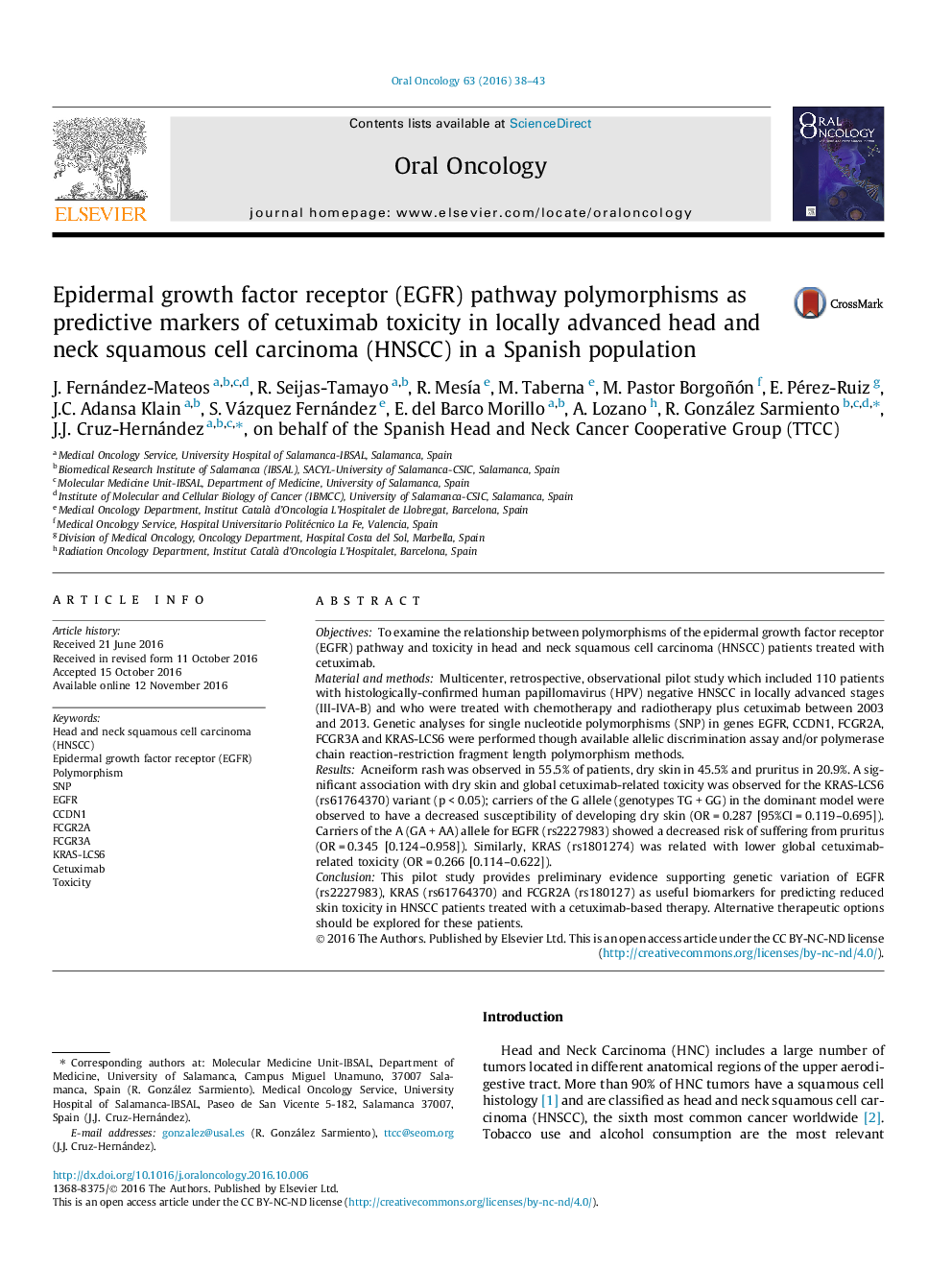| کد مقاله | کد نشریه | سال انتشار | مقاله انگلیسی | نسخه تمام متن |
|---|---|---|---|---|
| 5642727 | 1586247 | 2016 | 6 صفحه PDF | دانلود رایگان |

- EGFR overexpression is common in HNSCC, so a good target for therapeutic approaches.
- An association of KRAS-LCS6 (rs61764370) polymorphism with cetuximab toxicity was found.
- EGFR (rs2227983) variant showed a lower risk for pruritus after cetuximab treatment.
- KRAS (rs1801274) variant was significantly associated with lower cetuximab toxicity.
- Genetic variants related to reduced toxicity may allow allocation to other therapies.
ObjectivesTo examine the relationship between polymorphisms of the epidermal growth factor receptor (EGFR) pathway and toxicity in head and neck squamous cell carcinoma (HNSCC) patients treated with cetuximab.Material and methodsMulticenter, retrospective, observational pilot study which included 110 patients with histologically-confirmed human papillomavirus (HPV) negative HNSCC in locally advanced stages (III-IVA-B) and who were treated with chemotherapy and radiotherapy plus cetuximab between 2003 and 2013. Genetic analyses for single nucleotide polymorphisms (SNP) in genes EGFR, CCDN1, FCGR2A, FCGR3A and KRAS-LCS6 were performed though available allelic discrimination assay and/or polymerase chain reaction-restriction fragment length polymorphism methods.ResultsAcneiform rash was observed in 55.5% of patients, dry skin in 45.5% and pruritus in 20.9%. A significant association with dry skin and global cetuximab-related toxicity was observed for the KRAS-LCS6 (rs61764370) variant (p < 0.05); carriers of the G allele (genotypes TG + GG) in the dominant model were observed to have a decreased susceptibility of developing dry skin (OR = 0.287 [95%CI = 0.119-0.695]). Carriers of the A (GA + AA) allele for EGFR (rs2227983) showed a decreased risk of suffering from pruritus (OR = 0.345 [0.124-0.958]). Similarly, KRAS (rs1801274) was related with lower global cetuximab-related toxicity (OR = 0.266 [0.114-0.622]).ConclusionThis pilot study provides preliminary evidence supporting genetic variation of EGFR (rs2227983), KRAS (rs61764370) and FCGR2A (rs180127) as useful biomarkers for predicting reduced skin toxicity in HNSCC patients treated with a cetuximab-based therapy. Alternative therapeutic options should be explored for these patients.
Journal: Oral Oncology - Volume 63, December 2016, Pages 38-43